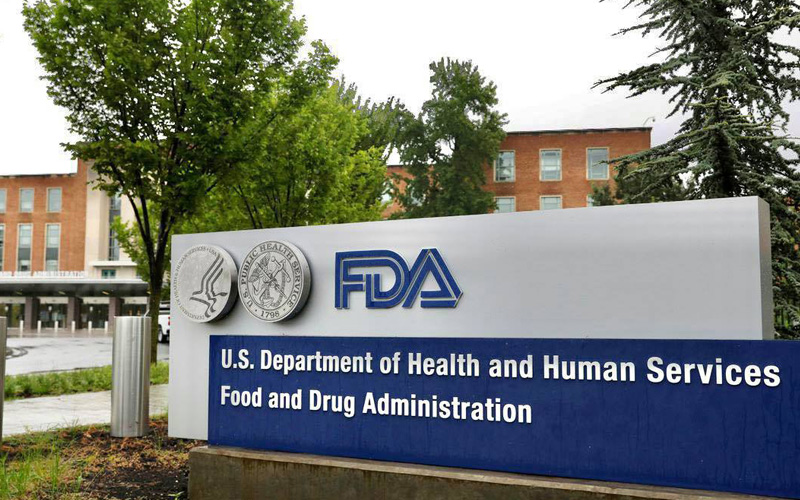The prospects of MDMA becoming the first psychedelic drug approved by the U.S. Food and Drug Administration (FDA) for mental-health treatment took a major hit on June 4. An advisory committee voted 10-1 that the potential benefits of MDMA do not outweigh the associated risks.
This vote followed an earlier 9-2 vote, which concluded that the drug’s sponsor, Lykos, had failed to provide sufficient evidence demonstrating the effectiveness of MDMA-assisted therapy. The FDA is expected to make its final decision on MDMA for PTSD treatment on Aug. 11.
Following the panel vote, Lykos CEO Amy Emerson issued a statement emphasizing that the company would continue to work with the FDA in the ongoing review of its new-drug application over the coming weeks. This includes discussions about a risk evaluation and mitigation strategy program, or REMS.
The FDA can require such a strategy for certain medications with serious safety concerns to help ensure that the benefits of the medication outweigh its risks.
“Part of the purpose of the meeting today was to help inform this REMS program, so we can continue to collaborate with the FDA to define the key elements,” Emerson said. “We will also work with the FDA to determine the most appropriate post-marketing plans to address the outstanding questions raised today, including how best to support the responsible integration of MDMA-assisted therapy into the healthcare system. If FDA-approved, prescription MDMA-assisted therapy will be launched with careful consideration of its potential benefits and risks, in accordance with established medical guidelines, protocols and quality standards.”
Regardless of the FDA’s decision, the committee’s vote should act as a wake-up call for the psychedelic medicine field. To fully harness the therapeutic potential of these compounds, the industry must uphold the highest standards and implement robust safeguards to mitigate the risks of abuse or adverse effects. Maintaining a commitment to rigorous protocols and meticulous safety measures is critical for earning the trust of the so-called medical establishment.
Allegations of misconduct by trial therapists and a lack of safety data – two of the main criticisms from the advisory committee – conjure old stereotypes about the dangers of psychedelics.
During the open public hearing, there were several voices of support for MDMA. But, others raised legitimate concerns about underground psychedelic practices, which have seemingly infiltrated a medical study, leaving doubts about the science and veracity of the study.
One of the people presenting during the public comment portion was Nase Davenot, a senior lecturer with John Hopkins University, who petitioned the FDA to hold the open public hearing. Her LinkedIn profile title refers to her as a “psychedelic humanities researcher.” She testified that the company engaged in a pattern of harms in its clinical trials, citing a patient who was pinned down during a session and other questionable practices.
In a LinkedIn post following her testimony, Davenot referred to the advisory committee’s vote as a “David and Goliath-scale” victory.
“The research into MDMA should have been done rigorously and ethically, but this sponsor chose otherwise,” she stated. “Although many are angry about this decision, I reject the premise that one people’s salvation must come at another’s destruction. The ends do not justify the means that I’ve seen employed by this organization.”
Dr. Jonathan Alpert, chair of the council on research for the American Psychiatric Association, expressed that while MDMA shows potential as a treatment, the studies evaluating its efficacy faced validity concerns. These concerns included high expectancy biases, lack of blinding and the fact that several participants had prior experience with MDMA before participating in the studies.
Unfortunately, the concerns over MDMA’s therapeutic use in the advisory committee hearing overshadowed its documented benefits for PTSD patients. An Iraq war veteran’s testimony highlighted how MDMA, combined with therapy from a PTSD-knowledgeable psychiatrist, alleviated his debilitating symptoms, including suicidal thoughts. While the drug plays a role, he noted that having support from qualified therapists was paramount to his success.
Fluence, an organization that provides training for psychedelic-assisted therapists, participated in the trial, said Fluence co-founder Elizabeth Nielson. The committee decision was disappointing given the outcomes that Fluence founders, trainers and students have seen firsthand, Nielson said.
“We believe the research supports its safety and efficacy when administered by properly trained therapists in controlled settings, and we look forward to the FDA’s decision in August 2024,” Nielson said in a prepared statement. “Despite the advisory committee’s vote, Fluence remains committed to advancing psychedelic research, education and access.”
Nielson said her organization would continue to collaborate with its trainers, research partners and policymakers to provide training programs that prioritize patient safety, therapist competency and ethical standards.
Amber Capone, co-founder and executive director of VETS, an organization that provides psychedelic-assisted therapy resources for military veterans, said she was also disappointed by the advisory committee’s vote because of the impact this treatment has already demonstrated for treating PTSD.
VETS is urging the FDA to carefully evaluate the powerful accounts from individuals with PTSD who have experienced benefits through MDMA-assisted therapy, Capone said. They advocated for the FDA to cooperate with researchers, therapists and patient advocates to develop a safe and effective regulatory framework for MDMA-assisted therapy.
“The high rates of veteran suicide and the limited effectiveness of currently approved PTSD treatments underscore the urgent need for innovative approaches like MDMA-assisted therapy,” she said. “While we acknowledge the panel’s concerns regarding the clinical trial design and potential risks, we believe these issues can and should be addressed through rigorous therapist training, patient monitoring and ongoing research.”

